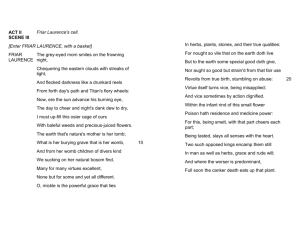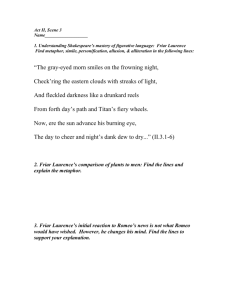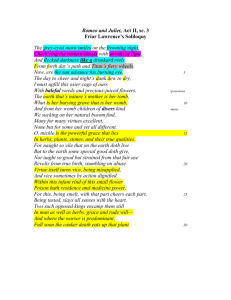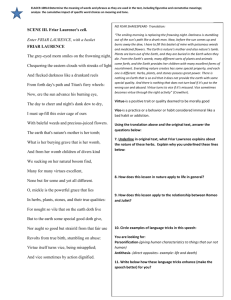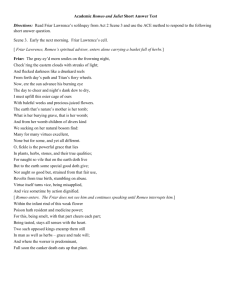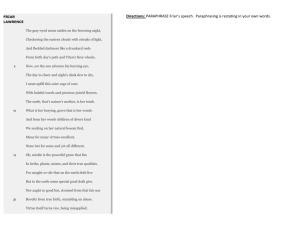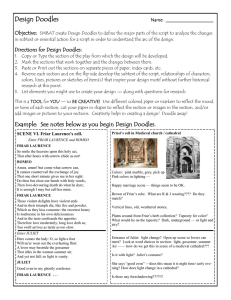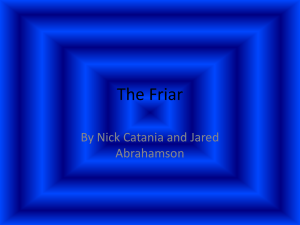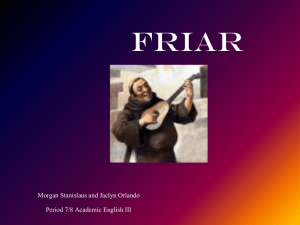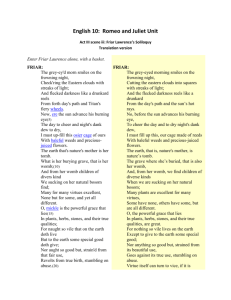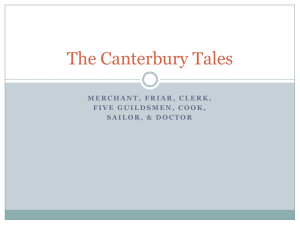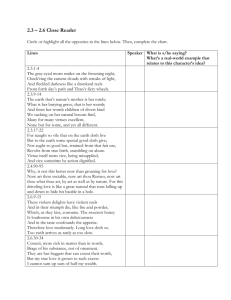Friar Laurence language trick handout
advertisement
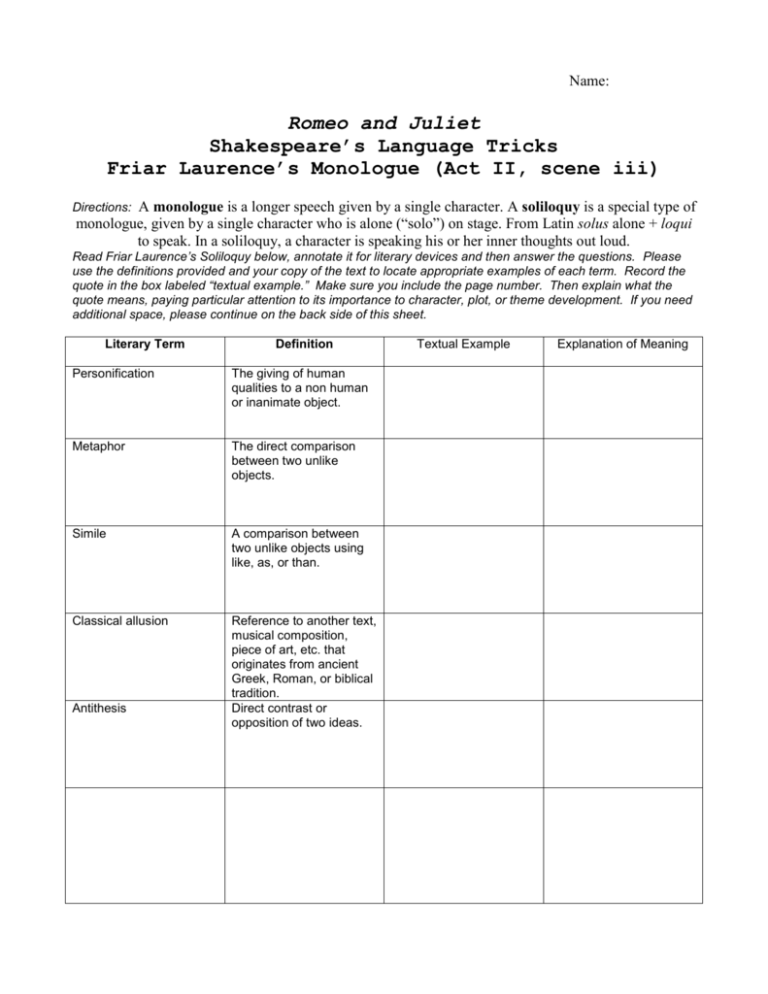
Name: Romeo and Juliet Shakespeare’s Language Tricks Friar Laurence’s Monologue (Act II, scene iii) A monologue is a longer speech given by a single character. A soliloquy is a special type of monologue, given by a single character who is alone (“solo”) on stage. From Latin solus alone + loqui to speak. In a soliloquy, a character is speaking his or her inner thoughts out loud. Directions: Read Friar Laurence’s Soliloquy below, annotate it for literary devices and then answer the questions. Please use the definitions provided and your copy of the text to locate appropriate examples of each term. Record the quote in the box labeled “textual example.” Make sure you include the page number. Then explain what the quote means, paying particular attention to its importance to character, plot, or theme development. If you need additional space, please continue on the back side of this sheet. Literary Term Definition Personification The giving of human qualities to a non human or inanimate object. Metaphor The direct comparison between two unlike objects. Simile A comparison between two unlike objects using like, as, or than. Classical allusion Reference to another text, musical composition, piece of art, etc. that originates from ancient Greek, Roman, or biblical tradition. Direct contrast or opposition of two ideas. Antithesis Textual Example Explanation of Meaning Grey-eyed morn smiles is personificationSmiling is a human quality. SCENE III. Friar Laurence's cell. Enter FRIAR LAURENCE, with a basket FRIAR LAURENCE The grey-eyed morn smiles on the frowning night, Chequering the eastern clouds with streaks of light, And flecked darkness 1like a drunkard reels From forth day's path and 2Titan's fiery wheels: Now, ere the sun advance his burning eye, The day to cheer and night's dank dew to dry, I must up-fill this 3osier cage of ours With baleful weeds and precious-juiced flowers. The earth that's nature's mother is her tomb; What is her burying grave that is her womb, And from her womb children of divers kind We sucking on her natural bosom find, Many for many virtues excellent, None but for some and yet all different. O, 4mickle is the powerful grace that lies In herbs, plants, stones, and their true qualities: For nought so vile that on the earth doth live But to the earth some special good doth give, Nor aught so good but strain'd from that fair use Revolts from true birth, stumbling on abuse: Virtue itself turns vice, being misapplied; And vice sometimes by action dignified. Within the infant rind of this small flower Poison hath residence and medicine power: For this, being smelt, with that part cheers each part; Being tasted, slays all senses with the heart. Two such opposed kings encamp them still In man as well as herbs, grace and rude will; And where the worser is predominant, Full soon the canker death eats up that plant. 1. What does Friar Lawrence explain about the nature of these herbs? 2. How does this nature lesson apply to life in general? 3. How does this nature lesson apply to the relationship between Romeo and Juliet? 4. How does Shakespeare’s use of language tricks (antithesis and personification especially) help strengthen these messages? 1 Bonus if you can identify BOTH literary devices in this line. Titan was the chariot of the sun god, Apollo. 3 Willow basket 4 Great, much 2
